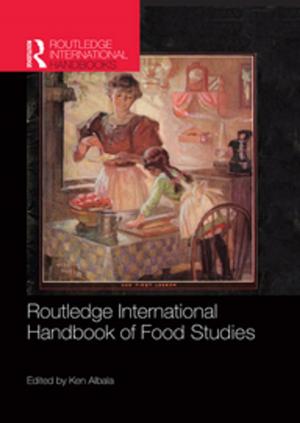The Language of Silence
West German Literature and the Holocaust
Nonfiction, Art & Architecture, General Art, Popular Culture, Fiction & Literature, Literary Theory & Criticism| Author: | Ernestine Schlant | ISBN: | 9781135961817 |
| Publisher: | Taylor and Francis | Publication: | November 23, 2004 |
| Imprint: | Routledge | Language: | English |
| Author: | Ernestine Schlant |
| ISBN: | 9781135961817 |
| Publisher: | Taylor and Francis |
| Publication: | November 23, 2004 |
| Imprint: | Routledge |
| Language: | English |
Focusing on individual authors from Heinrich Boll to Gunther Grass, Hermann Lenz to Peter Schneider, The Language of Silence offers an analysis of West German literature as it tries to come to terms with the Holocaust and its impact on postwar West German society. Exploring postwar literature as the barometer of Germany's unconsciously held values as well as of its professed conscience, Ernestine Schlant demonstrates that the confrontation with the Holocaust has shifted over the decades from repression, circumvention, and omission to an open acknowledgement of the crimes. Yet even today a 'language of silence' remains since the victims and their suffering are still overlooked and ignored. Learned and exacting, Schlant's study makes an important contribution to our understanding of postwar German culture.
Focusing on individual authors from Heinrich Boll to Gunther Grass, Hermann Lenz to Peter Schneider, The Language of Silence offers an analysis of West German literature as it tries to come to terms with the Holocaust and its impact on postwar West German society. Exploring postwar literature as the barometer of Germany's unconsciously held values as well as of its professed conscience, Ernestine Schlant demonstrates that the confrontation with the Holocaust has shifted over the decades from repression, circumvention, and omission to an open acknowledgement of the crimes. Yet even today a 'language of silence' remains since the victims and their suffering are still overlooked and ignored. Learned and exacting, Schlant's study makes an important contribution to our understanding of postwar German culture.















